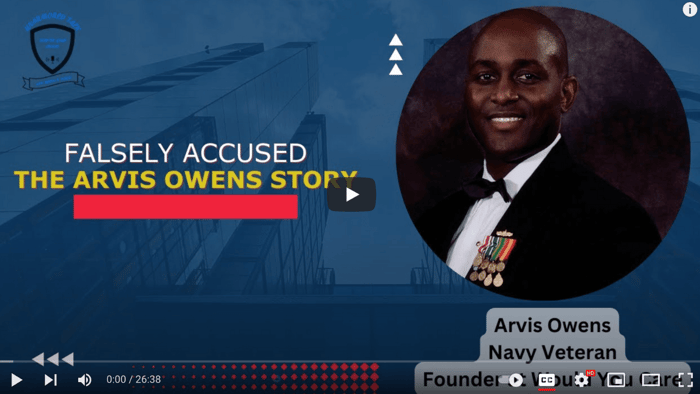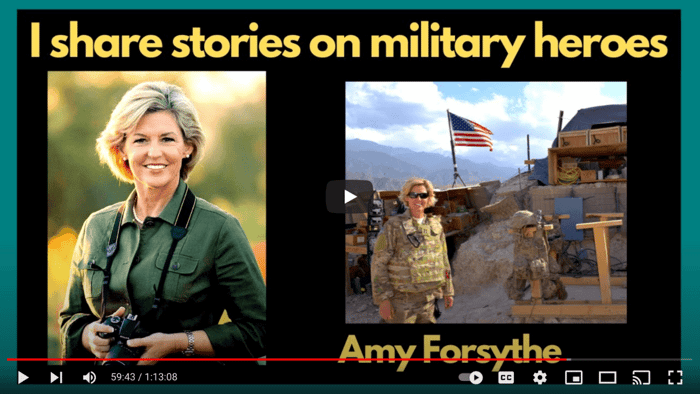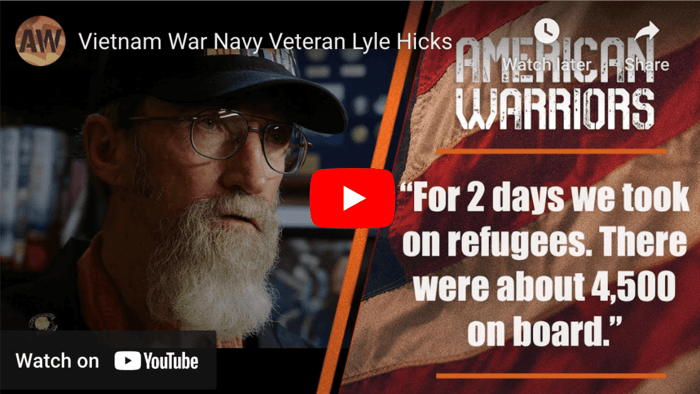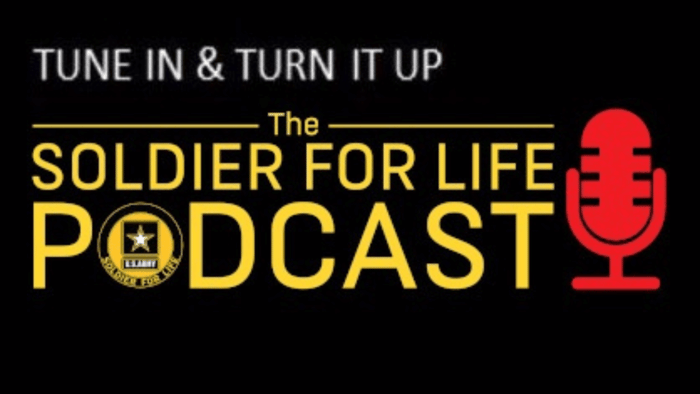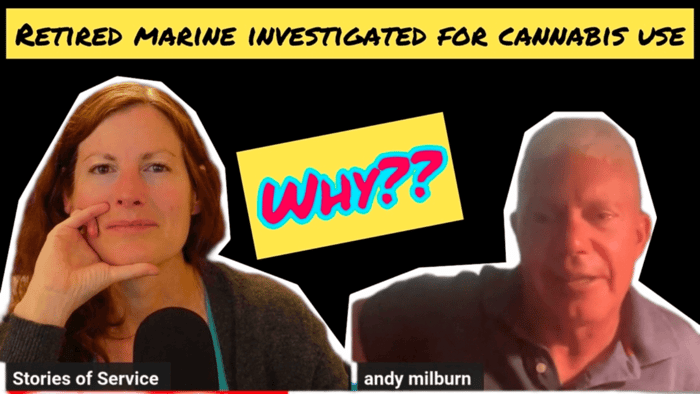Introduction
In this podcast episode, False Accusations Changed My Life: Forever, Arvis Jones shares his powerful and emotional experience of being falsely accused of sexual assault in the military and the devastating impact it had on his life. Arvis explains how this experience left him feeling alone, abandoned, and emotionally drained. He talks about the emotional turmoil he went through, the lack of support from many people, and the difficulties of being a registered sex offender.
Arvis highlights the importance of having a support system of positive people who can help individuals who may be going through similar situations. He also provides valuable advice, encouraging individuals to seek legal counsel and to surround themselves with people who can offer positive advice and support during difficult times.
Moreover, Arvis talks about the challenges of being a registered sex offender, sharing examples of how even small things like going to a family reunion or giving out trick-or-treat candy can trigger discrimination and harassment. He also touches on the difficulties of finding employment and the challenges of being treated as a subhuman.
Despite these challenges, Arvis remains hopeful and committed to improving the system. He encourages others to educate themselves on the issue and to support organizations that are working towards change.
Arvis's story is a powerful reminder of the importance of seeking support during difficult times and the need for our society to address issues of false accusations and the treatment of sex offenders.
Discussion Points
- The impact of false accusations on someone's life
- The importance of getting legal support when faced with false accusations
- How false accusations can reveal the true character of people in one's life
- The challenges of being a registered sex offender and the impact on employment and social life
- The role of support from loved ones in coping with the emotional impact of false accusations
- The need for justice rather than simply seeking convictions in cases of sexual assault
Things to think about
- False accusations of sexual assault can have a significant impact on someone's life, including emotional trauma and challenges with employment and social life.
- It is important to seek legal support when facing false accusations.
- False accusations can reveal the true character of people in one's life.
- The challenges faced by registered sex offenders, including restrictions on employment and social life, can make it difficult to move forward after false accusations.
- Having a support system of loved ones is crucial in coping with the emotional impact of false accusations.
- Justice, rather than simply seeking convictions, is important in cases of sexual assault.
- Supporting organizations like Still Serving Incorporated can make a difference in the lives of those in need.
Full Episode: False Accusations Changed My Life Forever
Resources
Unarmored Talk Guest - Arvis Owens
➡️ Change.org - Sign our Petition
Unarmored Talk Host - Mario P. Fields:
Social Media Accounts: Parade Deck
Website: Still Serving, Inc.
Transcript: False Accusations Changed My Life Forever
Disclaimer: This transcript was generated by an AI and may not be entirely accurate or free from errors.
(00:22)
Hello, everyone. Welcome back to the Unarmed Talk, Podcast. I am still your host, Mario P. Fields, and we have an amazing guest coming up today. His name is Arvis Owens, and I'll tell you a little bit more about him.
(00:33)
Arvis, again, before I get to your official introduction, welcome to the show, my friend. Thank you, Mario. Thanks for having me. No, I appreciate it. But before we get to Arvis, I want to say thank you guys again for always supporting the show.
(00:46)
And if you want to help Still Serving Incorporated, the nonprofit that I founded with some amazing teammates and God's blessings. You guys want to continue to help us make a difference for this year's graduating seniors in Innovation early College high school in Pitt County, right?
(01:05)
Greenville, North Carolina. That's Pitt County. Please go to www.stillservinginc.com. You guys can support our second annual charity golf tournament and luncheon. We still have time on the clock. That event will be held on May 22, so you still have time to support it.
(01:23)
And there are line items so you can pick. Hey, I want to donate $10 for ink, pens, stress balls, fleece bank blankets, you name it. And at the luncheon, every high school senior will get a gift bag, and they will be able to graduate and have things to help them transition to the next level.
(01:41)
That's either in academics or in the labor market. So join me. Be a part of it. And don't forget, a couple of bucks goes a long way for tomorrow's future professionals in the United States, America, and around the world.
(01:55)
All right, so I'm done with the admin stuff. Arvis Owens. He is a United States Navy veteran. All right. He's a graduate from the United States Naval Academy. That is not an easy thing to do, let alone get accepted.
(02:10)
I've done a couple of podcast episodes on folks who got rejected from that, and then he also reached the rank of commander while he was serving. Ladies and gentlemen, another guest who was willing to remove their armor to help other people.
(02:26)
Arvis, welcome again. Man thank you, Mario. And thanks to your audience for listening. No, thank you. So can you do me a favor and tell the listeners and viewers just a little bit about yourself? So I was born in Louisiana, but raised in Texas.
(02:40)
Consider myself a Texan in Beaumont, Texas. My love for the military started early. I got in Naval Junior ROTC when I was in high school and 9th grade. And friends and family can tell you from a very early age, my dream was to join the military, to serve.
(03:00)
And it was all I wanted to do was go to the Naval Academy and be a member of the Navy. Wow. So this journey started years ago. Yes, it did, Mario. I was very young. I was very excited. I did some scouting prior to that.
(03:19)
So if you want to be technical, start wearing a uniform when I was eight years old. So you had Cub Scouts and things like that. And so it was always a desire of mine to serve. So I was very excited for that opportunity.
(03:32)
I was able to do that. And then some unfortunate things happen. Yeah, let's get right into it. So from my basic understanding, Arvis, is that your childhood dream became a reality. You're serving in the United States Navy, protecting our nations, what I believe is our precious jewel called freedom.
(03:53)
And then all of a sudden, your career, your life. Is turned upside down. Let's talk about that. What happened, my friend? So let me first and foremost take responsibility for my portion. So I am married, I have twin boys.
(04:12)
I was at a joint assignment, and I had a brief extramarital relationship with a coworker. And that coworker decided to falsely accuse me of sexual assault. Wow. Here it is. You had a lapse in judgment, and thank you for removing your armor, to be honest, anyone who's honest, your stock just went up in my eyes.
(04:39)
So thank you for having the courage to do that. And so here it is. None of us are perfect. Then all of a sudden, this extramarital affair. Now she accuses you of sexual assault, is that correct? Yes, Mario, that's exactly what she does.
(05:01)
How was that communicated? Was that an email? They went to the command. How did you find out? So someone pulled me aside and I was told to remove my things from the command, and they were going to temporarily place me somewhere else.
(05:17)
And I think it was a Friday, I had to pack up my goods, I went home and I was told I was going to be reassigned somewhere pending the investigation and pending any proceedings that will go forward. So here it is.
(05:33)
You have basic information. You're a commander in the Navy now you have to relocate pending some investigation where you have limited information at that point. What emotions did you start to experience when all this initially started, Mario?
(05:54)
Fear? Confusion? Um. Curiosity. Just there's so many different emotions that go on in your body when something like that happens. You get that raw pit in your stomach and you don't know which way to go.
(06:11)
It is likened to a caged animal. I would imagine that you have all of these emotions going at the same time, and you don't know which way to turn. That's how it felt. Did you feel alone? Arvis like, did you feel like 1 minute you had teammates and people who looked up to you, and then the next minute it's just you?
(06:36)
Mario that's exactly how you feel. Your calls aren't returned. Now, let me say this. When you get accused of something, I don't know if the audience can imagine how they would feel if they were falsely accused of something.
(06:53)
But you find out who your friends really are. And so let me just say that my family and I have a core group of friends who are there through thick and thin. But the majority of people, they abandon you.
(07:08)
You find out who was jealous of you because they let you know and said, yes, I knew something was up, or I knew you weren't as good as you thought you were. And literally, you find out all of those people in your life who you thought were there.
(07:24)
It's a very small I think it's important for people to realize that not everyone who says they're your friend actually is your friend. And so you most certainly find that out. But, yes, for the most part, there is a heavy burden of feeling alone.
(07:41)
And the circumstances started to reveal the true character of people. Isn't that something? You're too nice or you're too professional. No one can be this professional, this squared away. There's got to be something.
False Accusations Changed My Life Forever
(08:00)
And Vice just going, maybe is a human being who's striving to be the best. I don't think any of us are perfect. Arvis, what's your thoughts? I definitely agree, and I'll give you an example of one. So I had a sailor who had worked for me, who I not only helped him become an American citizen, I helped him get promoted to be an officer in the military, and I couldn't get a letter of support from him.
(08:28)
And so just to put that in perspective, that you helped so many people throughout your career, and I'm sure you did as well. And when you pick up the phone to call and let me just be supportive of them a little bit is the environment at that time, the military was under tremendous political pressure to get convictions.
(08:50)
You had political leaders. You had four star flag officers, generals and admirals saying, we need more convictions. Not, we need more justice, right? We need more convictions. Yeah, we need more numbers.
(09:06)
We need numbers, right? We need things. Here it is. We'll speed up a little bit. You go to trial. You go to trial. What happened? So we go to trial, and I find out why most defendants don't testify in their own behalf.
(09:28)
First of all, I wanted to, and I did. I took the stand and I testified my own behalf. My accuser told numerous inconsistent statements. She wouldn't sign the police report, said it was consensual. And then one thing she said was, I didn't raise her pencil skirt.
(09:49)
She didn't raise it. It automatically flew in the air. Causing her legs to open, causing her to straddle me in a chair, causing her to automatically wrap her arms around me and open mouth, kiss me. But she didn't consent.
(10:01)
And so you hear the testimony. You hear the things. The other thing is, my accuser is Caucasian. I'm African American. The military presented an all white male panel. And I didn't know that that's what happened in the military thought Jim Crow era things had ended in the things like that.
(10:23)
And so I testify in my own defense, and the panel asked me questions. And the first question is, why would she do this? And there was a lot of evidence that wasn't turned over. But one thing I shared with them is she filed a civil suit against the military for money, but not me.
(10:41)
And I asked my attorney about that. I'm grateful she didn't. And he was like, she would have to give you more evidence. And then you saw how the injustice happens in the military. It's the denial of experts.
False Accusations Changed My Life Forever
(10:55)
The denial of evidence is even the judge. And so I was charged of seven counts of sexual assault. In that same panel, there were three other charges, I believe as well, found me not guilty of six. And then during sentencing, when my accuser made another inconsistent statement, you can't say lie in court.
(11:19)
They asked to revoke the verdict. They said they asked the judge, can we revoke that verdict? They also found me guilty of violating a general order. And we were able to discover they didn't even have a copy of that general order.
(11:33)
And the judge stated there's no evidence by his testimony and her testimony that he violated that general order. And I was also found the military puts catch alls in trials to ensure convictions. So it was conduct on becoming an officer, soliciting someone other than your wife.
(11:48)
So that was a charge. So then. My attorney goes back to them and asks them to write letters on my behalf because the judge refused to allow a new trial or then to overturn the verdict. And you have a convening authority in the military, Mario.
(12:04)
It's important to understand that's a general officer, a flag officer or commanding officer in many cases, and they could at that time order a new trial overturn the conviction or things things like that.
(12:17)
The judge issued an illegal order when she discovered that you had people who were going to write letters. So she had a hearing to ask the prosecutor to ask her to write the letter that she had already given to the juries, restricting what they could pass on.
(12:35)
And so many of them were scared away, but enough of them, Mario, wrote letters to the convening authority that says, hey, he's not guilty of this. But there was so much political pressure that he elected not to get involved.
(12:48)
In fact, it goes to the appellate court, and when it gets to the appellate court, they see and they kick it back to the convening authority and said, well, just because they said they were unsure doesn't mean they were unsure.
(13:02)
And let me back up a little bit. At first, the government lost the letters. They said no letters were submitted. But once we got proof that at least one letter was submitted, they found the letters. And so, Mario, I went to the press, I went to the media, and they didn't even send me to jail.
(13:19)
I was facing 30 years. They dismissed me, made me a sex offender, and gave me a dishonorable discharge. And I was going to ask you about that. So here it is. You go through this very mostly charged journey.
(13:39)
You get convicted of a charge, right? They found one. Then you have to register as a sex offender. But. But then subsequently, you get found not guilty, and they overturn it. Is that what I'm hearing?
(14:00)
Harvest no, you didn't hear that. But I'll tell you the nuance with that. So I have to register, and then I start fighting. I start going to the media. I start going to anybody who listen, and they won't.
(14:12)
They won't listen. The military has for seem to have a problem with sexual assault, so they don't want to hear about false allegations at all. And so I get together with some people and start a group, because I found out there's hundreds, possibly thousands of people just like me.
(14:29)
And I get seven of us total who are interested. And I start a petition. I use one of the members moms, as kind of the person at the lead just because she had been so vocal in her son's defense in getting his case looked at, even though it wasn't overturned.
(14:48)
And within two weeks of having that petition, the state of Virginia elected to take me off the sex offender registry. Wow. It was on seven years, ten months. They elected to take me off. And what it did was I started attracting more people to our cause and finding out others in this category.
(15:10)
If I may, you were on the sex offender list for how long? Seven years, ten months, until they realized you shouldn't be on it. Right. Literally. I got a letter that says, hey, we reviewed your file, and we're taking you off.
(15:26)
Oh, my goodness. But you still have conviction. Mario and let's say I decide to move to another state. Each state in the United States. Most people don't understand this can put you right back on the registry.
(15:40)
Have that conviction. If you have that conviction, have that conviction so they can elect to put you on. How? How has it how hard and difficult has it been to be able to look at where you believed your reputation was before all of this happened?
(15:59)
Your family and then the journey to get where your reputation is today. What were some of your major struggles during that? So, Mario, again, I started very early wanting a military career, and it becomes your identity.
(16:15)
Most people, I don't think, understand that it's a part of who you are, and so you become suicidal. I was suicidal. I had plotted how I was going to do it. I was going to do it in a hotel because I didn't understand why people would do it around their family.
(16:32)
I had made certain moves. And I'm going to tell you, I give a lot of credit to my wife. She did stay with me. She did forgive me is that she would put her children in my arms. And the thing that did it for me, and I want to say this so that other veterans who struggle with this is it's the people you leave behind.
(16:52)
That what really pressed on me was if you take this route, then the people who did believe in you, the people who did support you, they're going to think you did this. And you can't leave them with that burden.
(17:05)
You have to fight to show them that we don't give up when a wrong happens. We fight for ourselves and we fight for others. I would tell you, in this country, a sex offender is killed every month. Mostly it happens in prison.
(17:20)
But if you think about it, there are companies that will hire someone who kills someone if they've served their time, but they won't hire a sex offender. Wow. It makes employment extraordinarily difficult.
(17:31)
Your friends and neighbors. You're not getting invited to parties, Mario. You're getting treated in a way that is subhuman. You can't take your kids to school. You can't meet their teachers. Um, you're restricted where you travel.
(17:51)
In Virginia, when I first was put on, there was a rule that if you had a new email address, you had 30 minutes to register it or you'd go to prison. Wow. I've had neighbors call on me because I was going to give out trick or treat candy.
(18:09)
I've had neighbors call on me because there was a bus stop in front of my house. Even though they knew me before these allegations, they knew where I was, and you never get to find out who they are. And so what I want to say is, in the military, a letter of reprimand, that's a piece of paper saying you did bad is punishment.
(18:31)
But in this country, being treated subhuman as a sex offender is not. Wow. And so you're reminded every day of it. And so there is a pressure, a loathing, a self loathing that you have that I can't even explain.
(18:48)
You get checked for my wife's family, and pardon me, I get a little emotional. No worries. Had a family reunion, and she comes to me, and she wanted to go, and I said, Sweetie, I can't go. You can go.
(19:03)
You can bring the children, but I can't go on a cruise line. Right? They do the background check. I can't do that. And so your whole life becomes it revolves around it. If you go to another state, they have different rules.
(19:18)
You have to look into those rules and make sure because everything will get you arrested and charged. Again, I think let's say you happen to be go to Las Vegas. It's either one day or 48 hours. You have different requirements that you have to do.
(19:32)
And many cases, they're not published, and if you break them, you will go to jail, you will be arrested. And again, like I said, it impacts every single part of. And it really crushes your spirit in many senses.
(19:52)
Not only was I contemplating suicide, but many of the men I've helped, I've been able to talk them away from it and the experience I had. And again, it's because there's someone who loves you and supports you.
(20:06)
There's someone who believes you. And if you leave this world, then they will question that belief. And so it's important because I have two young men, boys. They're 13 years old, twin boys. And with what's going on in the world, they might be called to the military.
(20:24)
And so I asked parents, how would you feel if your son or your daughter perhaps would be falsely accused and wrongly convicted? Would you support them, serving them, the country? And let me back up. I love the military.
(20:39)
I want them to fix this. I want them to be better. The idea is we live in a country where we can speak freely. And so those are some of my experience. I apologize for being a little long. Windy? No, Harvard.
(20:56)
It's just breathtaking. You're doing some amazing things, and I can be on here with you for a week, my friend. But reflecting back and looking back to when this journey all began and you gave some wonderful advice on how to think through things and not emotionally react, and I appreciate that, especially with suicide.
(21:22)
And of course, it's a challenge worldwide. But looking back, if you had to give anybody in the world a piece of advice if they're ever falsely accused of anything, what would that be? So we're talking military or anywhere?
(21:43)
Any human being anywhere. I would tell you you need to get an attorney. A lot of people that I talk to think that they can handle this on their own. That because they didn't do anything, they can talk things through, and that's not the case.
(22:01)
You need to get an attorney. If you can't afford an attorney and you have to be assigned one, then I recommend you find a pair of legal to support that corn appointed attorney. And if you can't do that, an investigator, specifically a retired investigator from the body that's investigating you.
(22:25)
And so they can have a fresh look at the evidence and help you prepare to defend yourself. But it really is overwhelming. And when you become emotional, the thinking part of your brain shuts down. It does that for everyone.
(22:39)
And so you really have to have that team and that level of support and for the family, you have to watch that person. Because the example I'll give I had a speeding ticket is the only interaction with law enforcement in my life.
(22:55)
I went from speeding ticket once to sex offender. And so that's a big leap. And many of the men that I support, again, that's a huge leap. And so you're left thinking by yourself. So you need to surround yourself with positive people to give you that positive advice to help your mind go other places as you work through the process.
(23:19)
Wow. No great advice, Harvard. I would have never thought about I mean, it could happen to me and I would have never thought about that. And you're doing some amazing things. How can our listeners and viewers find you and if they want to support what you're doing?
(23:35)
So one way is we have a change campaign. It's called change. Unjust. U-N-J-U-S-T-U-C-M. You'll see six other people, including myself, where we summarize our stories. You can also go to the website www.
(23:54)
Dot, would you one word care. Would you care? So www. Dot, would you care? Mario what I also tell your listeners is I don't want you to believe what I'm saying just because I'm saying it. I want your listeners to go and look at and Google the judicial proceedings panel for the barriers to the fair administration of justice in military sex assault cases.
(24:18)
I want them to look up the University of Illinois Law Review that's called Justice Is No Longer Blind, that talks about the injustice in the military. I want them to see some of the data we have and the evidence we have.
(24:33)
We have people we have at least one person who he has a video of his accuser admitting that she lied, and he was not allowed to present that in a military court. The civilian police dropped the case against him because of her admitting that she lied and she made up the allegations.
(24:53)
And then a year later, the military charged this young man ruined his entire life and would not allow him to show the video. So you can reach out to me. I welcome. I falsely accused. We work with you.
(25:06)
We will show you how to support yourself in a way where you can present the information. So those are the ways you can get in touch with us. You can see our information and you can support us to get the military to do the right thing.
(25:21)
Thank you. No, thanks, Harvard so much. And ladies and gentlemen, everyone, those links will be definitely in the show. Note and again, Arvis, thank you for removing your armor. Everyone. You guys heard it from Arvis and he's doing amazing things.
(25:36)
I had a chance to research the things he's doing. And sexual assault does not have a gender or race. It can happen to anyone. And false allegations with any. Anything can happen to anyone in the world.
(25:50)
So again, my friend, thank you for removing your armor, for giving us some very thoughtful tips on again, if we ever experience anything like you and we're falsely accused of anything, especially those in the military, you got some good resources, and hopefully this episode helps you.
(26:09)
If that happens to you, be safe, my friend, and thank you so much for coming on the show. Tell your lovely family hello from the Fields family and we'll see you soon. I will. Thank you again, maury. Thank you.
(26:20)
Be safe. Well, ladies and gentlemen, till next time, a couple of weeks. See you guys, or you guys who are listening can hear me. Until then, be safe. God bless and we'll see you soon.
